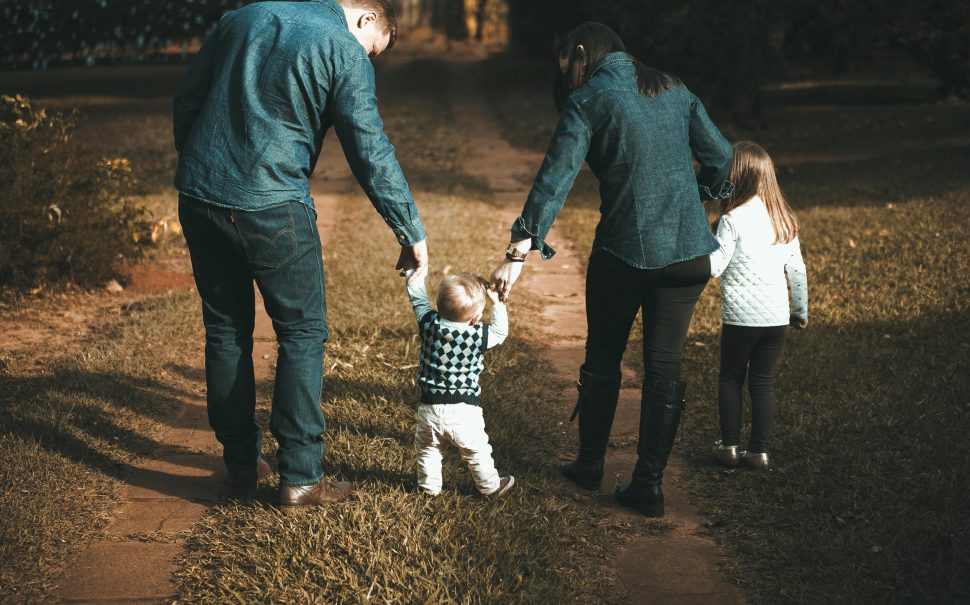More women in Greater Manchester are waiting until they are in their 30s before having children, Office for National Statistics data suggests.
The most recently released ONS figures show Greater Manchester mothers over 30 rose around 20% from 2013 to 2022, with the number of mothers over 40 up 21%.
The number of mothers under 30, however, dropped significantly, especially those under 20, which dropped by 51%.
The mean age of mothers increased to 30.7 years old in 2022 from 29.6 in 2013.
Abigail Hayley, 24, is one example of a young woman likely to postpone having a baby.
She said: “I probably will have children in the future. When I was younger, I always thought I would have children at 28, but that won’t happen.
“I am completely happy with my relationship as it is. I don’t feel mature enough to look after another human being, and I’m not financially secure enough to support another life.”
Robert and Trudie, 50 and 44, have two children, Alice and Henry.
They had their first child, Alice, when they were 40 and 34 years old respectively.
Robert knew he would have children at some point – but, he said: “I didn’t meet my wife until I was 37 or 38.
“I moved around a lot across the country because of my career, so I never had time to have a stable relationship.”
Robert added that the government should provide more funding to support new parents.
He said: “The local children’s services had a sensory room for babies’ development which the government closed locally – leaving nothing government-funded for new parents.
“I live in a very rural area. They withdrew all the services due to government cuts, and new parents must travel 15 miles to use the facilities in the next town.”
More people in England and Wales are also choosing to have children outside of marriage – in 2021, births outside marriage or civil partnerships overtook births within them for the first time.
Abigail said: “A marriage certificate doesn’t define a family. It’s how you live in a household together.
“I’m happy to stay as I am with my partner, living with him and sharing life together without a marriage certificate or anything like that.
“I don’t think it is an issue if you don’t get married.”
Overall, despite increases in numbers for older and unmarried mothers, the birth rate in England and Wales is declining – perhaps indicating that the importance placed on having a baby has diminished.
The number of total live births in England and Wales dropped 13% between 2013 and 2022.
Robert said: “From my perspective, young people put the career first before having a family.
“But you can’t blame them either, because everything around them is expensive.
“Buying a house is expensive, and the cost of living is so expensive.
“Some people are struggling to even survive on a monthly basis, struggling to pay their rent and food – so they make a conscious decision not to have children.”
One such person is Veronique Kung, age 37.
She said: “There are so many reasons I don’t want to give birth.
“First of all, freedom. I like my time so much. I need to go to the gym, shop, and travel. There is so much to do; money and time are the more significant issues.
“Do you know how much it is to raise a child? Just so much money – and it is stressful.”
Home-Start Manchester is a family support charity that works in local communities across the city, offering volunteer-led support to struggling families.
CEO Shelly Roberts said: “I think the other reason might be linked to a focus on career and also to the fact that we are a very digitally focused, less interactive kind of community culture now.
“I think people are meeting their life partner later in life.
“Women generally think more deeply about whether to have a family or what they want for their life.
“It is because these are huge life changes and commitments – there’s no going back.”
She agreed that rising costs were also a factor in people choosing to delay motherhood – and echoed Robert’s concern about the level of government support.
“The government should subsidise the child care cost. In terms of our charity, we have a waiting list of 80 families at the moment, waiting five to six months for support.
“The government needs to invest more into services like ours – the demand of the service is far more than our capacity.
“More investment in the early stage is needed.”
Featured image credit: Vidal Balielo Jr. via Pexels




